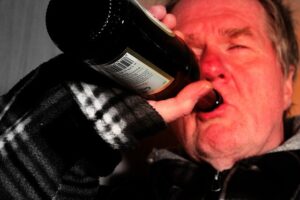Create Your Own Addiction Relapse Prevention Plan
Are you in recovery? Have you planned out things you’re going to do in the first year? Have you thought about how you are going to live a clean and sober life completely free from drugs or alcohol? The thing is you need to plan out things in recovery.

You need to focus on your goal and work out a plan on how you’re going to get there. If you don’t, you might not get there. In short, you need to make a plan otherwise you are likely to fail and relapse. Therefore, you need to create your own addiction relapse prevention plan. Here are a few tips to help you create this plan and live a sober and clean life in recovery.
Triggers
You need to think to figure out your cravings and stress inducers before these actually happen. It will help you in figuring out the way forward when you have those cravings or face a stressful situation. You need to know what triggers that craving inside you to use. Those warning signs and relapse triggers will lead to cravings. Don’t worry too much as it’s a completely natural and normal part of the recovery process and these triggers with go away when you give them some time.
Think of things that your mind associates with using such as being with certain people, being at a certain place or certain kind of music. You need to avoid some things during your recovery such as visiting bars. However, each individual also has some specific triggers. Therefore, you need to plan ahead to prevent relapse, at least in the first year when you are just getting into the recovery phase. Planning ahead is crucial to avoid the relapse triggers you are likely to come across during recovery.
Ask for Social Support
Focus on building a positive support network. Find others who need to talk to someone and offer them the required support to get through these difficult times. Think of a person you would like to talk to when you need that support. It could be anyone who can help you take your mind off of things or help you get through that difficult time. Some couples go through rehab together with inpatient couples rehab.
Here are a few tips to help you come up with your own addiction relapse prevention plan:
- Preparing a list of professional you would like to call in an emergency. It could be a counselor or a crisis line or an alcohol/drug rehab.
- Write down the name of people in recovery groups you can rely upon during those difficult times. Being a part of recovery programs such as AA/NA or others and having someone sponsor you can go a long way in ensuring your long-term success.
- Prepare a list of relatives or friends you can comfortably talk to about your problems including those relapse thoughts. Focus on people you could comfortably talk to about your recovery phase.
- Finally, write down a list of people you could comfortably talk to when you just need someone to help you get your mind off of things.
Some people can help you with distraction. You do not need to tell them that you are using them as a distraction. Think about people you would like to talk about movies, news, sports, and other such things.
Care about Your Body in Recovery
Your physical being and mental being are intertwined, and when you take care of one, the other follows. When you take care of your body, you also set yourself on the path of good mental health which means your mind will be able to better cope with stress and you will have fewer cravings for drugs or alcohol.
To take care of your body, you need to eat right, sleep right, exercise regularly, maintain proper hygiene and meditate as prescribed. All these life skills will help you get rid of addiction and make your recovery successful.
How to Get Rid of Stress
You need to realize that stress is a part of life, and it’s going to happen. You need to come up with techniques to cope with stress and overcome it. You can’t avoid it and therefore, you need to learn to live with it. Here are a few tips on some coping techniques and mechanisms you will find helpful for combating stress:
- Get out of the busy city life
- Do some yoga
- Create a list of those inspirational quotes you can find online or off-line
- Write down all the things for which you are grateful
- Figure out your goals and write them
- Chalk out a plan to achieve your goals
- Try to stay optimistic
- Create a list of your strengths
- Try to stay away from negative thoughts
- Take up painting, drawing or writing
- Take a walk
- Take a bath
- Start reading books
- When you are walking, chant some mantras and reflect on your day
Think of similar activities that can help you relieve stress and stay healthy. Over time, you will develop your own coping skills.
Write down the Plan
If you haven’t written down your addiction relapse prevention plan, you might hesitate to follow it. So, write it down and put it right in front of you, on the refrigerator. Keep a copy in your wallet. You don’t want to get puzzled when you get those cravings. You will have hard time thinking what you should do when you have a craving. So, keep this list ready to go and when you have that craving, you will know what to do.
Plan for Relapse
What are you going to do if you relapse? Are you going to think of yourself as a failure? Relapse doesn’t make you a failure. Think of every new day as a step you take in the right direction.
Who said you can’t do it again?
You got sober once and there is nothing that could stop you from doing it again. You don’t automatically become a failure because you relapsed to drug use or drinking. Addiction is chronic which means relapse is probable. In fact, you should know that relapse rates for addiction are in the same range as asthma, hypertension and diabetes.
When you are treating your addiction, you need to focus on changing those deeply embedded thoughts and behaviors inside you, and it’s not going to happen overnight. If you relapse, it means that some adjustments are required for your treatment and you need to work harder on changing yourself. Millions of people recover each day. It’s a continuous process, and people who recover successfully know that you need to plan to achieve success. Once you have a plan, success will follow.


